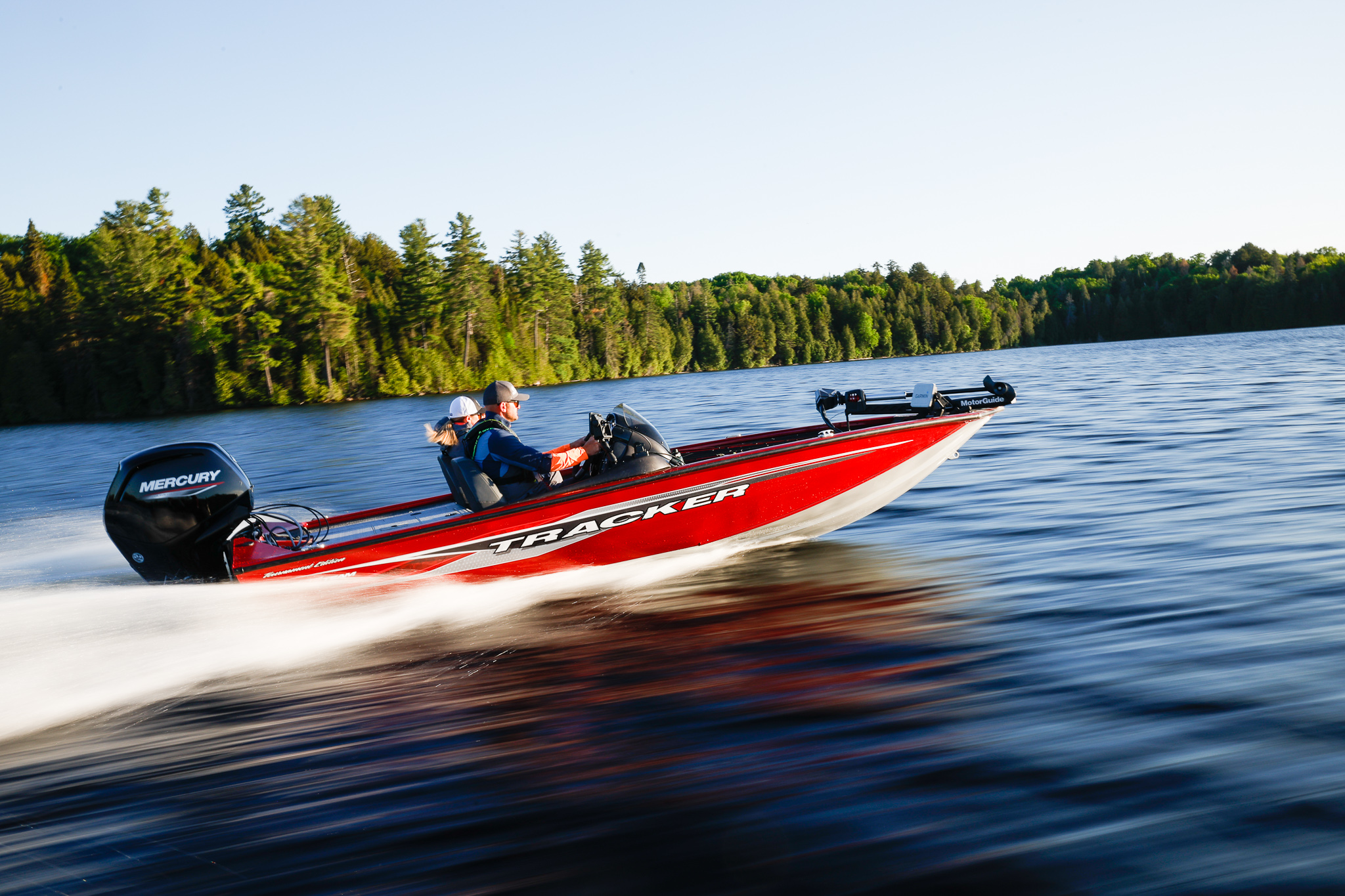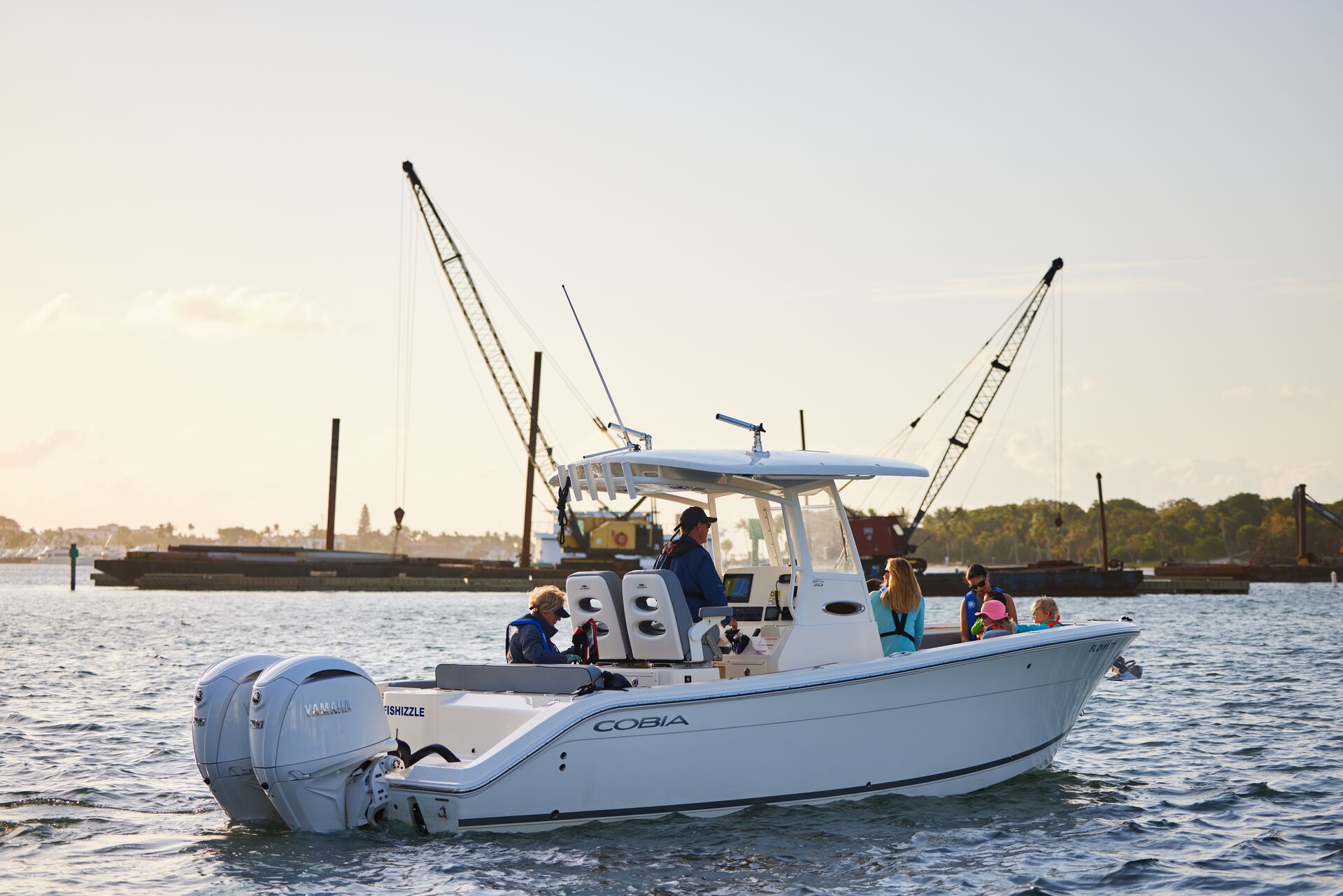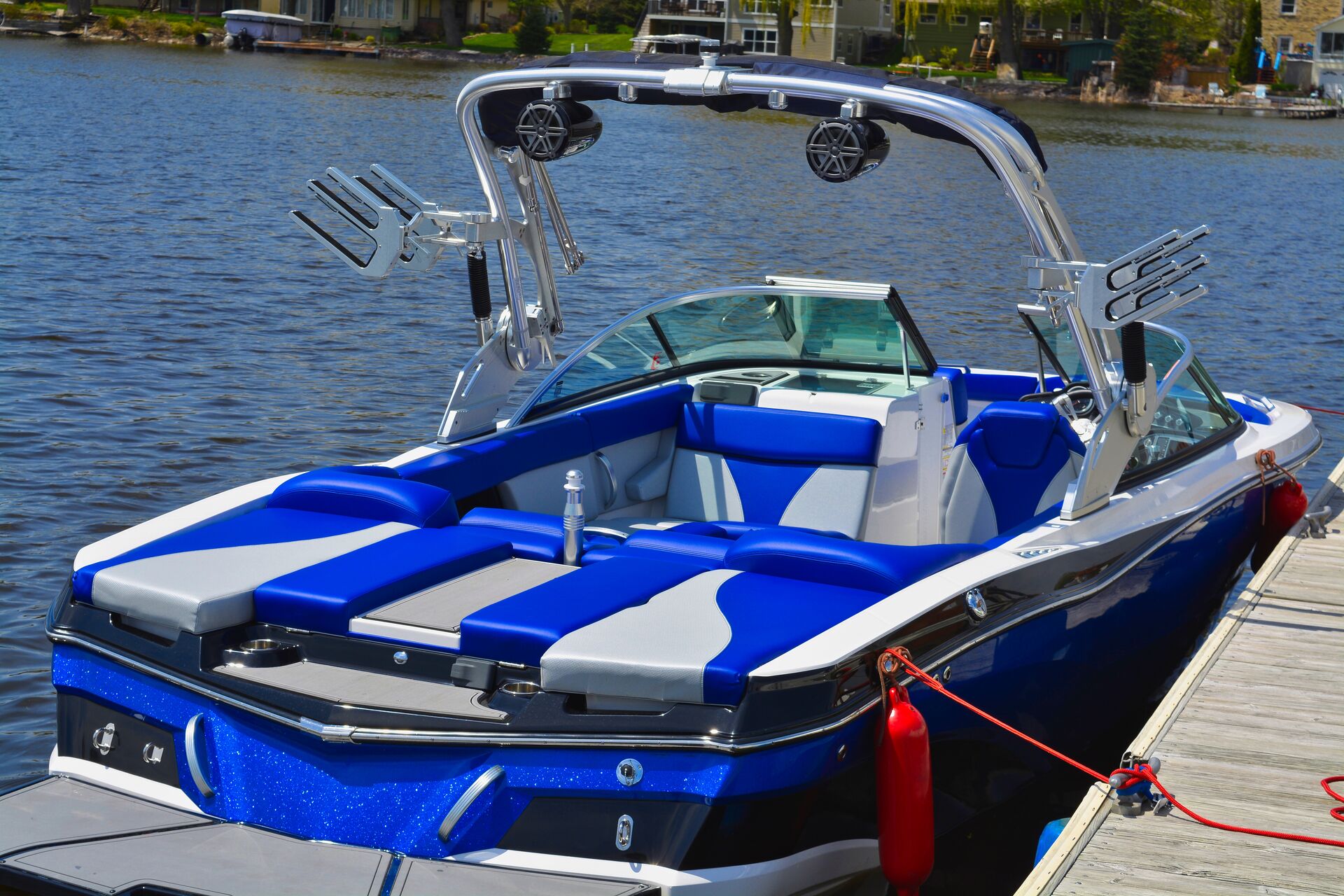Aluminum vs Fiberglass Boats: Pros and Cons

Choosing the right boat for your lifestyle and water adventures is essential, and there's more to the choice than just the size or hull type. For example, you'll want to consider aluminum vs fiberglass boats and decide which is best for your needs.
Both are popular with boaters but for entirely different reasons. Keep reading to learn about the pros and cons of each boat material so you can choose with knowledge and confidence.
Aluminum vs. Fiberglass Boats: Why It Matters
Depending on what you love to do on the water, you'll need a boat built to handle those activities. So, when choosing a boat for a day on the water (or to purchase), consider your preferences and boating environment so you end up with a vessel you love.
For example, if you fish for bass on a lake, you may want a boat that is very different from someone who travels in the open ocean or a river. If you pull a water skier or like to have a lot of passengers, you also require a different boat type.
With so many choices, finding the best boat for your needs and goals can sometimes feel overwhelming, but it doesn't have to be.
Aluminum Boats: Pros and Cons
Let's look at the pros and cons of aluminum boats.
Pros
- Durable and Resilient: Aluminum boats are excellent for rugged use and can withstand impacts from rocks and debris. They're less prone to cracking or shattering when compared to fiberglass.
- Lightweight: An aluminum boat may be easier to tow and launch. This is especially important if you have a smaller towing vehicle, as towing a lighter boat requires less horsepower for similar performance, potentially saving fuel.
- Low Maintenance: Aluminum boats are resistant to corrosion (especially if appropriately treated for saltwater use) and require minimal upkeep compared to fiberglass boats, which require waxing and buffing.
- Affordable: This type of boat is often less expensive upfront than a fiberglass boat. Due to its straightforward materials and construction, it's also easier to repair.
Cons
- Aesthetic Appeal: Aluminum boats typically lack the sleek, polished finish of fiberglass boats. They also have limited design and customization options, so they may not be a good choice for someone who wants a fancy or flashy look.
- Ride Quality: This boat's metallic construction makes it noisier on the water. Its lightweight build may also provide a rougher ride in choppy conditions.
- Heat and Noise: Aluminum can get hot to the touch in direct sunlight, and it amplifies sound, which may be distracting or undesirable. For example, if you're trying to stay quiet so fish will come near, the added noise of this type of boat could make that difficult in some circumstances.

Fiberglass Boats: Pros and Cons
Next, let's look at some of the pros and cons of fiberglass boats.
Pros
- Smooth Ride: A fiberglass boat's heavier build provides better stability and smoother performance in rough waters. These boats also absorb shocks more effectively, reducing vibrations.
- Aesthetic Versatility: Sleek, stylish designs with various shapes and finishes give you options when you choose a fiberglass boat. Fiberglass is easier to mold into complex designs, enhancing performance and aesthetics.
- Quiet Operation: The fiberglass construction dampens sound, so you'll have a quieter boating experience. This can be ideal for fishing or if you want to be peaceful on the water.
- Longevity in Saltwater: If you spend a lot of time in saltwater and are trying to decide between aluminum vs fiberglass boats, fiberglass is more resistant to saltwater corrosion than untreated aluminum.
Cons
- Cost: Fiberglass boats are generally more expensive to purchase and maintain than aluminum boats. Repairs are typically costlier and may require a professional.
- Weight: These are heavier than their aluminum counterparts, making towing and launching your boat more challenging. This is particularly problematic if you have a smaller vehicle with a lower towing capacity, and the increased weight could also result in higher fuel consumption.
- Durability: How long does a fiberglass boat last? If you choose a fiberglass boat, you should know they're more susceptible to cracking, chipping, and impact damage. Repairs to your boat can be time-consuming and expensive, and they need regular maintenance, like waxing and buffing, to maintain their appearance.

Key Considerations When Choosing the Best Boat for Your Adventures
How you intend to use your boat is one of the most significant considerations when choosing between an aluminum canoe vs fiberglass canoe (for example), or a larger boat. Aluminum is ideal for fishing, hunting, and rough environments, while fiberglass suits cruising, watersports, and saltwater adventures.
You'll also need to consider your budget carefully. To choose a boat you feel good about, factor in the initial cost, fuel efficiency, and maintenance expenses over time.
Aesthetic preferences matter, too, and you have very different appearances and customization options with aluminum vs fiberglass boats.
Saltwater vs. freshwater usage can significantly affect longevity and maintenance, so your location is another consideration when deciding which boat to buy.
Which One Is Right for You?
Aluminum may be a great choice if you want a sturdy, lightweight, durable boat. On the other hand, fiberglass could be a better fit if you're looking for a heavier, more customizable, smooth-riding boat for saltwater.
Assessing your boating habits, needs, and budget before deciding is essential so that you can be happy with your purchase for a long time.

No Matter Which Boat Is Best, Make Safety a Priority
Whether you've just bought a boat or are still thinking about aluminum vs fiberglass boats, don't forget to put safety first on the water.
One of the best ways to do this is to take a boater education course like the ones we offer here at ilearntoboat! The safety knowledge you'll gain from one of our state-approved courses helps you protect yourself and your passengers while getting more enjoyment from your boat.
Plus, our courses are in a gamified format, making it fun (and fast) to learn everything required for your state's boating education requirements. Before choosing the best boat for your adventures, pick the course for your state and start learning about safety.


